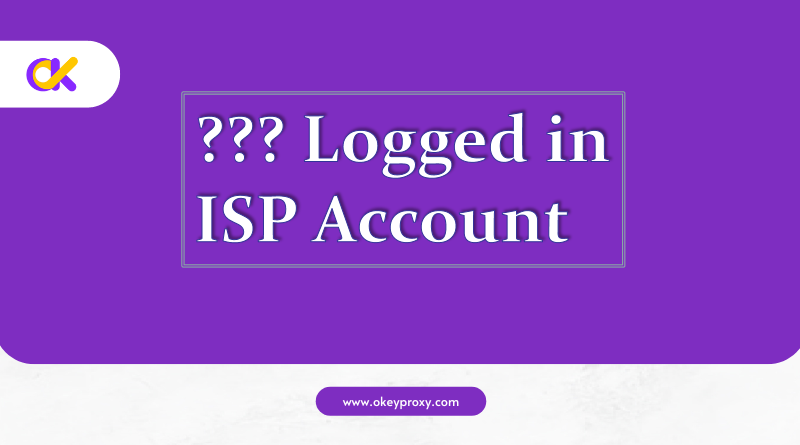Ваш интернет-провайдер (ISP) играет ключевую роль в подключении вас к интернету. Однако многие пользователи не знают об объеме информации, которую провайдеры могут регистрировать об их действиях в сети. От истории просмотров до использования данных - провайдеры часто собирают и хранят данные о пользователях, вызывая опасения за их конфиденциальность. В этом блоге мы рассмотрим, что обычно регистрируют провайдеры, зачем они это делают и как пользователи могут защитить свою конфиденциальность.
Какие данные регистрируют интернет-провайдеры?
Интернет-провайдеры могут регистрировать различные типы информации в соответствии со своей политикой конфиденциальности и местными правилами. Обычно регистрируются следующие данные:
1. История просмотра
Интернет-провайдеры могут отслеживать посещаемые сайты, URL-адреса и время, проведенное на каждом сайте.
Почему интернет-провайдер записывает историю просмотров?
Для соблюдения законодательства, оптимизации сети или целевой рекламы.
2. IP-адреса
IP-адрес, назначенный пользователю, и IP-адреса, к которым он обращался во время просмотра веб-страниц.
Почему интернет-провайдер регистрирует ваши IP-адреса?
Для правильной маршрутизации трафика и ведения учета в целях безопасности или по закону.
3. Использование данных
Объем данных, отправленных и полученных во время интернет-сессий.
Почему интернет-провайдер регистрирует использование данных?
Для управления пропускной способностью, выставления счетов и ограничения тарифных планов.
4. Журналы соединений
Подробные сведения о времени входа и выхода из системы, продолжительности сеанса и типе соединения (проводное, беспроводное и т. д.).
Почему провайдер регистрирует активность вашего соединения?
Мониторинг производительности сети и устранение неполадок.
5. Информация об устройстве
Такие сведения, как тип устройства, операционная система и MAC-адреса.
Почему провайдер регистрирует информацию о вашем устройстве?
Для управления устройствами и обеспечения безопасности сети.
6. Электронная почта и журналы связи
В почтовых службах, предоставляемых провайдером, часто регистрируются такие метаданные, как временные метки и адреса получателей.
Почему интернет-провайдер регистрирует вашу электронную почту и записи разговоров?
Для соблюдения требований законодательства и управления системами электронной почты.
Могут ли интернет-провайдеры просматривать пароли или личные данные?
Провайдеры не могут видеть зашифрованные данные, такие как пароли или содержимое, передаваемое через веб-сайты HTTPS. Однако незашифрованный трафик (HTTP-сайты или определенные приложения) может быть виден.
Зачем интернет-провайдеры регистрируют данные?
Соблюдение правовых норм: Многие страны требуют от интернет-провайдеров сохранять данные пользователей для правоохранительных органов.
Управление сетью: Журналы данных помогают интернет-провайдерам контролировать трафик и обеспечивать эффективную работу сети.
Выставление счетов и поддержка клиентов: Журналы подтверждают использование и помогают в устранении неполадок.
Реклама: Некоторые интернет-провайдеры используют данные о просмотре сайтов для доставки целевой рекламы.
Законно ли интернет-провайдер регистрирует действия в сети?
Практика лесозаготовки зависит от страны и часто регулируется местными законами:
-
В некоторых регионах интернет-провайдеры обязаны хранить журналы в течение определенного периода времени для правоохранительных органов.
-
В других странах могут действовать строгие законы о конфиденциальности, ограничивающие такую практику.
Как долго интернет-провайдеры хранят данные/журналы?
Срок хранения зависит от политики провайдера и местных правил. Некоторые интернет-провайдеры хранят журналы в течение нескольких месяцев, в то время как другие могут хранить их годами.
В странах со строгими законами о хранении данных интернет-провайдеры часто обязаны хранить данные в течение определенного срока.
Хотите изучить конкретные инструменты или методы для дальнейшей защиты частной жизни от мониторинга провайдера? Переходите к следующей части.
Способы защиты частной жизни от прослушивания интернет-провайдеров
-
Используйте прокси-сервер или VPN
Шифруйте свой интернет-трафик, чтобы провайдерам было сложнее отслеживать ваши действия. Рассмотрите такие сервисы, как OkeyProxy для надежных прокси-решений.
Похожие: Официальное руководство OkeyProxy
-
Включить HTTPS
Обеспечьте безопасное взаимодействие с веб-сайтами с помощью шифрования HTTPS.
-
Используйте зашифрованную электронную почту и службы обмена сообщениями
Защитите метаданные и содержимое ваших сообщений.
-
Отказ от сбора данных
Многие интернет-провайдеры позволяют пользователям отказаться от сбора данных для рекламных целей.
-
Регулярно следите за политикой провайдера
Следите за новостями о практике провайдера и при необходимости корректируйте меры по обеспечению конфиденциальности.
Заключение
Понимание того, что провайдеры регистрируют и почему они это делают, очень важно для сохранения конфиденциальности в Интернете. Хотя провайдеры необходимы для доступа в Интернет, у пользователей есть инструменты и стратегии, позволяющие ограничить объем собираемых данных. Использование таких решений, как прокси-серверы, VPN и зашифрованные каналы связи, поможет пользователям взять под контроль свой цифровой след.
Для расширенных решений по обеспечению конфиденциальности, включая поддержку прокси-серверов SOCKS5, изучите такие варианты, как OkeyProxy может стать практическим шагом к обеспечению безопасности деятельности в Интернете.
Вопросы и ответы
-
Могут ли интернет-провайдеры обмениваться зарегистрированными данными?
Да, но только при определенных обстоятельствах:
-
Интернет-провайдеры могут передавать данные правоохранительным органам, если это требуется по закону.
-
Некоторые из них могут использовать анонимизированные данные для маркетинга или аналитики, в зависимости от их политики конфиденциальности.
-
-
Могут ли VPN или прокси-серверы предотвратить запись в журнал провайдера?
Использование VPN или прокси шифрует данные между пользователем и VPN-сервером, скрывая активность просмотра и целевые веб-сайты от провайдера. Однако провайдер все равно может видеть:
-
IP-адрес VPN или прокси-сервера.
-
Объем передаваемых данных.
-
-
Могут ли пользователи запрашивать журналы данных у интернет-провайдеров?
Да, в зависимости от юрисдикции. Многие регионы требуют, чтобы интернет-провайдеры предоставляли данные журнала по запросу пользователя. Для получения подробной информации обратитесь в службу поддержки интернет-провайдера.
-
Предотвращает ли режим инкогнито запись в журнал провайдера?
Нет, режим инкогнито только предотвращает локальное хранение истории просмотров на устройстве. Интернет-провайдеры по-прежнему регистрируют сетевую активность.
-
Похожи ли провайдеры общественного Wi-Fi на интернет-провайдеров в плане ведения логов?
Да, провайдеры общественного Wi-Fi часто регистрируют подобные данные, такие как время подключения и активность просмотра веб-страниц, в целях безопасности и эксплуатации.
-
Могут ли интернет-провайдеры отслеживать потоковое вещание или торренты?
Да, в целях соблюдения ограничений пропускной способности или законов об авторском праве интернет-провайдеры могут обнаруживать шаблоны данных, указывающие на потоковое вещание или торренты. Поэтому иногда пользователи скрывать IP-адрес от провайдера до начала работы с торрентами.

